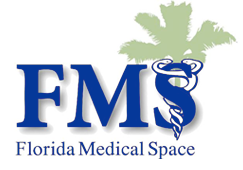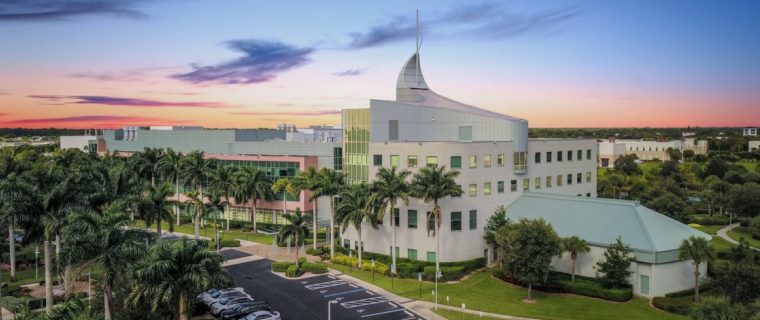Scripps Research is in talks to merge its Jupiter-based biomedical operation with the University of Florida‘s academic health center’s research division in a relationship that pairs private and public institutions.
In 2003, Scripps expanded to Florida on a 30-acre campus adjacent to Florida Atlantic University. Officials said Thursday this merger will spur cooperation with other institutions in Florida, including FAU.
Florida paid Scripps $310 million to open a Florida lab in an effort to entice biotech firms to the state, and Palm Beach County added $269 million.
Then Gov. Jeb Bush had envisioned 50,000 jobs in 15 years. Though the goal has not been met, Max Planck Florida Institute for Neuroscience later came to Jupiter. Scripps has grown to 40 faculty-led laboratories supported by a 500-member team, achieving the promising of that many jobs.
In addition, Palm Beach County bought 70 acres of vacant land for $70 million across from Scripps in Palm Beach Gardens with an intention of developing a “biotech village.” Scripps has been leasing the land, known as the Briger tract, for $1 per year and an option to have the deed transferred to the biotech company. The property hasn’t been developed and other portions of the Briger property have been sold for commercial and resident development, according to the Palm Beach Post.
Officials predict the University of Florida-Scripps relationship will generate additional jobs in expanding economic development.
“Our shared vision for propelling biomedical research forward is based on the great mutual respect our two institutions have for each other,” said Dr. Peter Schultz, Ph.D., president and chief executive officer of Scripps Research based in La Jolla, California.
“UF is an outstanding partner for Scripps Florida — the two institutions have complementary basic and translational research capabilities and strengths which, when combined, will enhance their collective reputation and impact on Florida,” Schultz added. “We have built an outstanding research institute in Scripps Florida with generous support from the state and from local communities and we believe it will have its biggest impact on Florida and greatest opportunity for further growth as part of UF, one of the country’s leading research and educational institutions.”
Shared research could potentially include cancer, drug discovery, immunology and infectious disease, neuroscience, including Alzheimer’s disease and other aging-related disorders, as well as and structural biology and molecular medicine.
UF has spent $942 million in research expenditures during the past fiscal year, including $143 million in National Institute of Health grants, which is tops in the state. Scripps has received $33 million from NIH.
UF already has research collaborations with Scripps.
The agreement will build on that relationship by capitalizing on each of their strengths, said Dr. David R. Nelson, M.D., senior vice president for health affairs at UF and president of UF Health, the university’s academic health center.
UF and Scripps Research plan to name Patrick Griffin, Ph.D., to lead the joint operation. Griffin is now chairman of the department of molecular medicine at Scripps Florida and directs its Translational Research Institute.
“Our shared vision focuses on improving the health of humanity and developing innovations to optimize quality of life,” Nelson said. “With this venture, we will both be positioned to take medical research to the next level in a way that is win-win for the people of Florida and beyond.”
University of Florida President Kent Fuchs said this relationship can spur relationships with other state university-system institutions, including FAU and Florida International.
“This would be the next logical step, adding to the impact Scripps Research has already made in Florida,” Fuchs said. “They have been great stewards of the state’s investment in biotech, and we look forward to partnering on this next phase to add value and grow additional research and tech collaborations.”
“This news is welcome because it aligns with the commitment of Florida’s public universities to work together for the greater good. FAU is looking forward to expanding on our existing collaborations with UF and Scripps Florida by identifying educational and research opportunities that leverage our shared strengths,” FAU president John Kelly, Ph.D., said. “These include exploring common interests in areas like autism, neuroscience, molecular biology and data science to advance medicine.”
The University of Florida has collaborated with FAU and other universities on the 1Florida Alzheimer’s Disease Research Center.
In 2020, 1Florida ADRC received a five-year $15 million NIH grant to expand its work with a heightened focus on further understanding dementias in diverse populations.
The University of Florida and FAU also have collaborated on the NIH-funded National Drug Early Warning System coordinating center to identify emerging drug abuse trends.
Scripps announced in March one of its researchers, Dr. Michael Farzan, was in the process of developing a COVID-19 vaccine that is broken down to powder, shipped to delivery sites without refrigeration and mixed with water before injecting individuals.
Farzan is the chairman of the Department of Immunology and Microbiology at the Scripps Research Institute.
Source: WPTV


